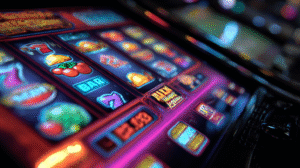Turning the Tables: How to Master the Strategic Depth of the Turn Card in Any Poker Game
In the nuanced drama of poker, few moments carry as much weight or potential as the Turn—the unveiling of the fourth community card. Known to seasoned players as the game’s tipping point, the Turn is more than just another card; it is a moment of transformation. With a single flick of the dealer’s hand, the landscape of the hand shifts dramatically, ushering in both clarity and complexity. For players who know how to read it, leverage it, and act decisively, the Turn can be the beginning of victory. For others, it becomes the harbinger of collapse.
The Turn arrives after the initial flurry of the flop, when three community cards set the stage and provoke the first round of deep calculations. At this point, hands start to take shape. Players begin to define their range and read into their opponents’ actions. Then comes the Turn—a fourth card that either confirms a player’s instincts or sends them scrambling to reassess. It’s the moment when strategies crystallize or crumble, and a once-straightforward path can twist unexpectedly.
What makes the Turn so significant is the volume of information it introduces. Unlike the flop, which broadens the playing field quickly, the Turn adds a finer detail to the narrative of the hand. It doesn’t just expand possibilities; it refines them. A flush draw becomes a flush. A straight draw gets closer—or fails altogether. Two pairs become full houses, or second pair becomes second best. The implications of this single card ripple through the table, forcing players to reevaluate everything from their perceived equity to their betting lines.
For those holding drawing hands, the Turn can be a moment of fulfillment. Catching the perfect card to complete a flush or straight can dramatically increase the strength of a hand and shift the betting dynamic in your favor. It’s a time to pivot from cautious play to confident aggression, to extract value from opponents who remain uncertain or who believe their top pair still holds. For players with speculative holdings, this card can validate their decision to see the flop—or punish them for chasing unlikely outs.
But not every Turn brings hope. Just as often, it signals missed potential. That one card might shut down your draw entirely or strengthen a board in such a way that your hand, once promising, now looks weak and exposed. A paired board might hint at full houses lurking, while a third suited card on the board invites questions of a completed flush. In these moments, the Turn is merciless. It demands a player’s humility, their ability to step back from sunk-cost thinking and fold when necessary. Misreading the Turn—or clinging to a hand that’s fallen behind—can be costly.
This is also the point where bluffing can become a potent weapon. If you’re first to act after the Turn and sense hesitation or weakness in your opponent, this is a prime opportunity to apply pressure. Whether semi-bluffing with a draw or leveraging position with a strong read, the Turn allows skilled players to dictate the tempo and narrative of the hand. It’s where stories are either believed or unravel under scrutiny, and betting patterns from earlier streets begin to tell the real tale.
Position becomes even more crucial at this stage. Acting last on the Turn provides a valuable advantage, allowing you to see how opponents respond to the newly revealed card before making your own move. It can guide decisions on whether to continue a bluff, extract more value, or slow down the action based on changing board texture. The ability to read reactions here—physical or strategic—can be the edge that turns a marginal hand into a profitable one.
Understanding the psychology of the Turn is just as important as analyzing its mechanics. This street is often where players’ confidence is either reinforced or challenged. It’s not uncommon to see dramatic shifts in betting behavior here—an opponent who was passive on the flop may now lead out with conviction, suggesting a made hand or an aggressive draw. Reading those shifts, knowing when to trust them and when to challenge them, is a skill honed through experience and sharp observation.
Ultimately, the Turn is poker’s great inflection point. It carries with it a mix of finality and potential, a closing in of possibilities yet also an opening for bold plays. The decisions made here are not made in isolation—they are echoes of previous streets and setups for the final act, the River. But for many hands, the Turn is where the story is truly written. It’s the moment when winners begin to emerge, and the reckless or rigid are exposed.
To master the Turn is to respect its complexity. It’s a dance of numbers, psychology, and nerve. It’s where strategy must be fluid and responsive, where players must simultaneously think ahead and stay grounded in the moment. This is where the sharpest minds in poker find their edge—not just in catching the right card, but in knowing how to act when it falls.
Whether it delivers triumph or forces retreat, the Turn is a reminder of why poker remains one of the deepest and most captivating games ever played. One card. Infinite possibilities. The Turn is not just a stage in the hand—it is where true players rise.
Poker Related:

Play Tight, But Aggressive: Mastering the Art of Poker Strategy
Play Tight, But Aggressive: Mastering the Art of Poker Strategy In the world of Poker, understanding the concept of playing tight, but aggressive is crucial to becoming a successful player. This strategy is often used by experienced professionals to maximize their potential winnings while minimizing their risk. So, what does it mean to “play tight,

Why Many “Top” Online Casino Review Sites Have Lost Their Integrity – And Why E-Vegas.com Is Different
Why Many “Top” Online Casino Review Sites Have Lost Their Integrity – And Why E-Vegas.com Is Different For years, online casino players relied on a small group of well-known review websites to help them navigate the rapidly expanding world of internet gambling. These sites built reputations on trust, transparency, and experience. They reviewed established casinos,

Understanding the UK Online Casino Market: Regulation, Games, Trust, and Consumer Protection
Understanding the UK Online Casino Market: Regulation, Games, Trust, and Consumer Protection The UK online casino landscape has evolved into one of the most closely regulated digital gambling environments in the world. Over the past decade, online casinos in the UK have shifted from loosely organised gaming websites into a tightly controlled industry shaped by

The Ultimate Guide to Online Casinos in the UK: What You Need to Know
The Ultimate Guide to Online Casinos in the UK: What You Need to Know The online casino industry in the United Kingdom has grown rapidly over the past two decades, transforming into one of the most vibrant and heavily regulated gambling markets in the world. For both seasoned gamblers and newcomers, the UK’s online casino

Top UK Online Casino Providers: The Best Software Developers to Know
Top UK Online Casino Providers: The Best Software Developers to Know When it comes to online casinos, the software that powers the games is just as important as the games themselves. The developers behind the scenes are the ones responsible for creating the immersive experiences that players love, from the stunning graphics and smooth gameplay to

Live Dealer Casinos: The Ultimate UK Guide How to Use E-Vegas.com to Find The Best Live Tables
Live Dealer Casinos: The Ultimate UK Guide How to Use E-Vegas.com to Find The Best Live Tables The world of online gambling has evolved dramatically over the years, with new technologies continually shaping how players experience their favorite casino games. One of the most significant innovations to emerge in recent years is live dealer casinos.

The Great Shift: How Online Casinos Evolved from Vegas Imitation to True Vegas Integration
The Great Shift: How Online Casinos Evolved from Vegas Imitation to True Vegas Integration For more than two decades, the online casino world has lived in the shadow of a single glowing skyline: Las Vegas. From the earliest digital slots with blinking neon borders to the first browser-based card tables that tried to capture the

The Evolution of Online Gambling: From Land-Based to Digital from Inter Casino to Online Vegas
The Evolution of Online Gambling: From Land-Based to Digital from Inter Casino to Online Vegas The world of gambling has undergone an extraordinary transformation over the past few decades. What was once confined to physical casinos and smoky rooms filled with the sound of clinking chips has morphed into a thriving global digital marketplace. Online
FAQ: How To Treat the Turn Card at The Poker Table
1. What is the turn card in poker?
The turn card is the fourth community card dealt face-up on the table, following the flop and preceding the river, in games like Texas Hold’em and Omaha.
2. When is the turn card dealt?
The turn card is dealt after the completion of the second round of betting, known as the flop betting round, and before the commencement of the third round of betting.
3. What is the significance of the turn card?
The turn card provides additional information and potentially changes the strength of players’ hands, influencing betting decisions and strategies for the remainder of the hand.
4. How does the turn card impact players’ strategies?
The turn card can significantly impact players’ strategies by altering the strength of their hands, creating new drawing opportunities, or completing potential strong hands like straights, flushes, or full houses.
5. Can players bluff on the turn?
Yes, players can bluff on the turn by betting or raising with weaker holdings to represent strength and pressure opponents into folding better hands. Bluffing on the turn requires a good understanding of opponents’ tendencies and the ability to construct a believable narrative with one’s betting actions.
6. What should players consider when evaluating the turn card?
When evaluating the turn card, players should consider the texture of the board, the strength of their hand relative to the community cards, their opponents’ likely holdings and tendencies, and the potential impact of the turn card on future betting rounds.
7. How does the turn card affect the dynamics of the hand?
The turn card can dramatically alter the dynamics of the hand by shifting the balance of power among players, creating new opportunities for aggression or deception, and influencing decisions about whether to continue in the hand or fold.
8. What if a player misses their draw on the turn?
If a player misses their draw on the turn and fails to improve their hand, they may choose to check and see the river card for free, fold to further aggression from opponents, or attempt to bluff their way to victory by representing a strong hand through aggressive betting.
9. What strategies can players employ to maximize success on the turn?
To maximize success on the turn, players should carefully analyze the implications of the turn card, consider their opponents’ likely holdings and tendencies, vary their betting sizes and frequencies strategically, and adapt their strategies based on the specific dynamics of the hand and table.
10. How does the turn card influence the overall outcome of the hand?
The turn card plays a pivotal role in shaping the outcome of the hand by influencing betting decisions, altering the strength of players’ hands, and setting the stage for the final betting round and showdown on the river. It can determine who wins or loses the pot and ultimately impacts the overall dynamics of the game.

